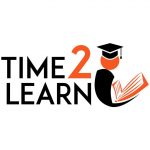Want to improve your chances of landing that teaching assistant role? Take a look at our Level 2 Support Work in Schools and Colleges qualification.
Our NCFE CACHE Level 2 Award in Support Work in Schools and Colleges qualification has been specifically geared towards a teaching assistant’s role to equip you with the knowledge you need. If you’re ready for a rewarding career in education, our course can get you started.
This course is fully online, giving you the flexibility to study in the comfort of your own home. With an online workbook, webinars, as well as email and call support from one of our tutors.
Want to improve your chances of landing that teaching assistant role? Take a look at our Level 2 Award in Support Work in Schools and Colleges!
From just £45 or £15/month for 3 months!




























Our accredited course gets you a nationally recognised qualification you can put on your CV and hands-on support from professional tutors throughout your learning, as well as access to all of our online course materials.
If choosing our CPD course, you’ll have access to all of the course materials for self-guided study, alongside continuous, automated testing of your knowledge. You will gain a CPD certificate once you have completed the course.
The partners option is perfect for schools and colleges. It gives learners access to online course material for self-guided study, allowing them to set their own pace.
In this qualification you’ll be introduced to the role that a teaching assistant plays and the knowledge that you’ll need to work in a range of learning environments. What you’ll learn will help you better understand the variety of roles you could be playing as a teaching assistant, from administration to site support.
Our course is ideal for anyone looking to step into a career as a teaching assistant, and can be taken by both young and adult learners.
Over the duration of this course you’ll improve your knowledge on how to effectively communicate with and develop professional relationships with children, young people and adults. You’ll also learn to identify the stages of development in children and young people and how you can be a positive influence on them.
This Level 2 Award is a knowledge-based course so classroom experience isn’t necessary to complete the qualification. Your assessments are integrated right into the course, so there’s no need to worry about the stress of a final exam.
In order to gain accreditation for this course you must complete the units in order. Take a look at the units you’ll be studying on this course up above and see what you can expect to learn in each of them.
Worried about distance? Your learning will be conducted 100% online with access to an online workbook, webinars, and one-on-one support from one of our tutors.
When you have your Level 2 Support Work in Schools and Colleges qualification you’ll be naturally suited to begin a career as a teaching assistant with your newly acquired knowledge and understanding.
As a teaching assistant you could earn around £15,124 to £22,090 depending on your qualifications and experience. To improve your chances of earning these higher salaries you could move onto a Level 3 Teaching Assistant course to further expand your knowledge.
Over the next few years, the education sector is projected to grow, leading to 57,928 new Teaching Assistant job roles by 2027, the increase in demand means you’ll have increased job security and peace of mind.
To build on what you’ll have already learned throughout your Level 2 Support Work in Schools and Colleges course, you could also take courses in Childcare, Safeguarding, Autism, or Equality and Diversity. With these supporting qualifications, you can show specialised knowledge and understanding that is highly valued in school settings that will help you to get the position you want.
For example, you might begin the process of becoming a Special Educational Needs (SEN) teaching assistant through an Understanding Autism course. SEN Teaching assistants are more specialised than regular TAs and with that comes a higher pay grade and greater responsibility.
Your career in education doesn’t have to stop with you becoming a teaching assistant, it’s also a great jumping off point for a wider career in the sector. With the knowledge you develop during your Level 2 qualification and beyond, you might go on to be an assessor, a private tutor, examinations officer, or even a teacher after further study.
Once you have progressed to becoming a qualified teacher you could earn from £25,714 to £41,604. But to progress from being a teaching assistant to a teacher, you’ll need to ensure you have a higher level qualification. You could pursue either an undergraduate degree with Qualified Teacher Status (QTS) or, if you have a subject in mind that you’re interested in teaching, you could get an undergraduate degree in that subject, and then obtain a Postgraduate Certificate (or Diploma) of Education (PGCE or PGDE).
If progression down one of these paths interests you, getting your Level 2 Support Work in Schools and Colleges qualification will be a great start. If you want to know where you could go after you get your Level 2 Support Work in Schools and Colleges qualification, why not check out our helpful guide on how to become a teaching assistant, or our Level 3 Teaching Assistant Course.
NCFE is a national Awarding Organisation as well as a registered educational charity and has a strong heritage in learning, going back over 150 years.
On completion of this course you will receive the NCFE CACHE Level 2 Award in Support Work in Schools and Colleges (RQF Qualification Number: 603/2478/8). These qualifications are listed on the government regulated qualification website.
NCFE accredited qualifications contribute to the success of millions of learners at all levels, bringing them closer to fulfilling their personal goals. Last year alone, over 340,000 learners from over 2,000 colleges, schools and training organisations chose NCFE as the Awarding Organisation to help them move their careers forward.
NCFE is recognised as an Awarding Organisation by the qualification regulators for England, Wales and Northern Ireland. The regulators are the Office of the Qualifications and Examinations Regulator (Ofqual) in England, the Welsh Government in Wales and the Council for Curriculum, Examinations and Assessment (CCEA Regulation) in Northern Ireland.

Below is a list of units that you will have to complete as part of your Level 2 Award in Support Work in Schools and Colleges course, along with a short summary of their content. It’s a good idea to familiarise yourself with what you’ll be exploring.
Unit 1 – Understand Schools and Colleges as Organisations – 2 Credits
Will help you to prepare for work in a school setting, covering knowledge and understanding of a range of school environments. Learn about everything from the roles and responsibilities in schools to how they uphold their aims and values.
Unit 2 – Understand Children and Young People’s Development – 3 Credits
You will improve your knowledge of the stages of development of children and young people, as well as the influences that affect it and how to deal will them. There will be a particular focus on the potential effects of life events and changes in a child or young person’s life.
Unit 3 – Understand Communication and Professional Relationships with Children, Young People and Adults – 1 Credit
This unit will help you understand how to develop professional relationships with children, young people, and adults, as well as how to adapt your communication with each of them.
Unit 4 – Understand Children and Young People’s Health and Safety – 2 Credits
Learn how to respond to emergency situations, and understand health, safety, and security policy alongside government legislation so that you can recognise and manage the risks to children and young people, as well as support them in keeping themselves safe.
Unit 5 – Safeguarding Children and Young People – 3 Credits
Learn the importance of safeguarding the welfare of children and young people, including knowledge of relevant legislation, guidelines, policies, procedures, and e-safety, as well as how to handle emergency situations involving illness or injury.
Unit 6 – Understand Equality, Diversity and Inclusion in Work with Children and Young People – 1 Credit
You will become aware of the impact of discrimination on children and young people, as well as the policies and practices that combat this by promoting equality, diversity, and inclusion as well as their benefits.
Key Points:
What’s The Difference Between Partners, CPD, and Accredited courses?
Our accredited course gets you a nationally recognised qualification you can put on your CV and hands-on support from professional tutors throughout your learning, as well as access to all of our online course materials.
If choosing our CPD course, you’ll have access to all of the course materials for self-guided study, alongside continuous, automated testing of your knowledge. You will gain a CPD certificate once you have completed the course.
The partners option is perfect for schools and colleges. It gives learners access to online course material for self-guided study, allowing them to set their own pace.
What and How Will You Learn in Our Teaching Assistant Course
In this qualification you’ll be introduced to the role that a teaching assistant plays and the knowledge that you’ll need to work in a range of learning environments. What you’ll learn will help you better understand the variety of roles you could be playing as a teaching assistant, from administration to site support.
Our course is ideal for anyone looking to step into a career as a teaching assistant, and can be taken by both young and adult learners.
Over the duration of this course you’ll improve your knowledge on how to effectively communicate with and develop professional relationships with children, young people and adults. You’ll also learn to identify the stages of development in children and young people and how you can be a positive influence on them.
This Level 2 Award is a knowledge-based course so classroom experience isn’t necessary to complete the qualification. Your assessments are integrated right into the course, so there’s no need to worry about the stress of a final exam.
In order to gain accreditation for this course you must complete the units in order. Take a look at the units you’ll be studying on this course up above and see what you can expect to learn in each of them.
Worried about distance? Your learning will be conducted 100% online with access to an online workbook, webinars, and one-on-one support from one of our tutors.
When you have your Level 2 Award in Support Work in Schools and Colleges you’ll be naturally suited to begin a career as a teaching assistant with your newly acquired knowledge and understanding.
What You Could Earn as a Teaching Assistant
As a teaching assistant you could earn around £15,124 to £22,090 depending on your qualifications and experience. To improve your chances of earning these higher salaries you could move onto a Level 3 Teaching Assistant course to further expand your knowledge.
Over the next few years, the education sector is projected to grow, leading to 57,928 new Teaching Assistant job roles by 2027, the increase in demand means you’ll have increased job security and peace of mind.
Supporting Qualifications
To build on what you’ll have already learned throughout your Level 2 Award in Support Work in Schools and Colleges course, you could also take courses in Childcare, Safeguarding, Autism, or Equality and Diversity. With these supporting qualifications, you can show specialised knowledge and understanding that is highly valued in school settings that will help you to get the position you want.
For example, you might begin the process of becoming a Special Educational Needs (SEN) teaching assistant through an Understanding Autism course. SEN Teaching assistants are more specialised than regular TAs and with that comes a higher pay grade and greater responsibility.
Further Progression
Your career in education doesn’t have to stop with you becoming a teaching assistant, it’s also a great jumping off point for a wider career in the sector. With the knowledge you develop during your Level 2 qualification and beyond, you might go on to be an assessor, a private tutor, examinations officer, or even a teacher after further study.
Once you have progressed to becoming a qualified teacher you could earn from £25,714 to £41,604. But to progress from being a teaching assistant to a teacher, you’ll need to ensure you have a higher level qualification. You could pursue either an undergraduate degree with Qualified Teacher Status (QTS) or, if you have a subject in mind that you’re interested in teaching, you could get an undergraduate degree in that subject, and then obtain a Postgraduate Certificate (or Diploma) of Education (PGCE or PGDE).
If progression down one of these paths interests you, getting your Level 2 Award in Support Work in Schools and Colleges will be a great start. If you want to know where you could go after you get your Level 2 Award in Support Work in Schools and Colleges qualification, why not check out our helpful guide on how to become a teaching assistant, or our Level 3 Teaching Assistant course.
NCFE is a national Awarding Organisation as well as a registered educational charity and has a strong heritage in learning, going back over 150 years.
On completion of this course you will receive the NCFE CACHE Level 2 Award in Support Work in Schools and Colleges (RQF Qualification Number: 603/2478/8). These qualifications are listed on the government regulated qualification website.
NCFE accredited qualifications contribute to the success of millions of learners at all levels, bringing them closer to fulfilling their personal goals. Last year alone, over 340,000 learners from over 2,000 colleges, schools and training organisations chose NCFE as the Awarding Organisation to help them move their careers forward.
NCFE is recognised as an Awarding Organisation by the qualification regulators for England, Wales and Northern Ireland. The regulators are the Office of the Qualifications and Examinations Regulator (Ofqual) in England, the Welsh Government in Wales and the Council for Curriculum, Examinations and Assessment (CCEA Regulation) in Northern Ireland.

Below is a list of units that you will have to complete as part of your Level 2 Award in Support Work in Schools and Colleges course, along with a short summary of their content. It’s a good idea to familiarise yourself with what you’ll be exploring.
Unit 1 – Understand Schools and Colleges as Organisations – 2 Credits
Will help you to prepare for work in a school setting, covering knowledge and understanding of a range of school environments. Learn about everything from the roles and responsibilities in schools to how they uphold their aims and values.
Unit 2 – Understand Children and Young People’s Development – 3 Credits
You will improve your knowledge of the stages of development of children and young people, as well as the influences that affect it and how to deal will them. There will be a particular focus on the potential effects of life events and changes in a child or young person’s life.
Unit 3 – Understand Communication and Professional Relationships with Children, Young People and Adults – 1 Credit
This unit will help you understand how to develop professional relationships with children, young people, and adults, as well as how to adapt your communication with each of them.
Unit 4 – Understand Children and Young People’s Health and Safety – 2 Credits
Learn how to respond to emergency situations, and understand health, safety, and security policy alongside government legislation so that you can recognise and manage the risks to children and young people, as well as support them in keeping themselves safe.
Unit 5 – Safeguarding Children and Young People – 3 Credits
Learn the importance of safeguarding the welfare of children and young people, including knowledge of relevant legislation, guidelines, policies, procedures, and e-safety, as well as how to handle emergency situations involving illness or injury.
Unit 6 – Understand Equality, Diversity and Inclusion in Work with Children and Young People – 1 Credit
You will become aware of the impact of discrimination on children and young people, as well as the policies and practices that combat this by promoting equality, diversity, and inclusion as well as their benefits.

Read through our course information and decide which option suits you best
Add the course to your cart and decide whether you’ll be paying through monthly payments or all at once
Proceed to checkout and fill out your billing details
Sit back and relax while you’re enrolment is being processed
| Cookie | Duration | Description |
|---|---|---|
| cookielawinfo-checkbox-analytics | 11 months | This cookie is set by GDPR Cookie Consent plugin. The cookie is used to store the user consent for the cookies in the category "Analytics". |
| cookielawinfo-checkbox-functional | 11 months | The cookie is set by GDPR cookie consent to record the user consent for the cookies in the category "Functional". |
| cookielawinfo-checkbox-necessary | 11 months | This cookie is set by GDPR Cookie Consent plugin. The cookies is used to store the user consent for the cookies in the category "Necessary". |
| cookielawinfo-checkbox-others | 11 months | This cookie is set by GDPR Cookie Consent plugin. The cookie is used to store the user consent for the cookies in the category "Other. |
| cookielawinfo-checkbox-performance | 11 months | This cookie is set by GDPR Cookie Consent plugin. The cookie is used to store the user consent for the cookies in the category "Performance". |
| viewed_cookie_policy | 11 months | The cookie is set by the GDPR Cookie Consent plugin and is used to store whether or not user has consented to the use of cookies. It does not store any personal data. |